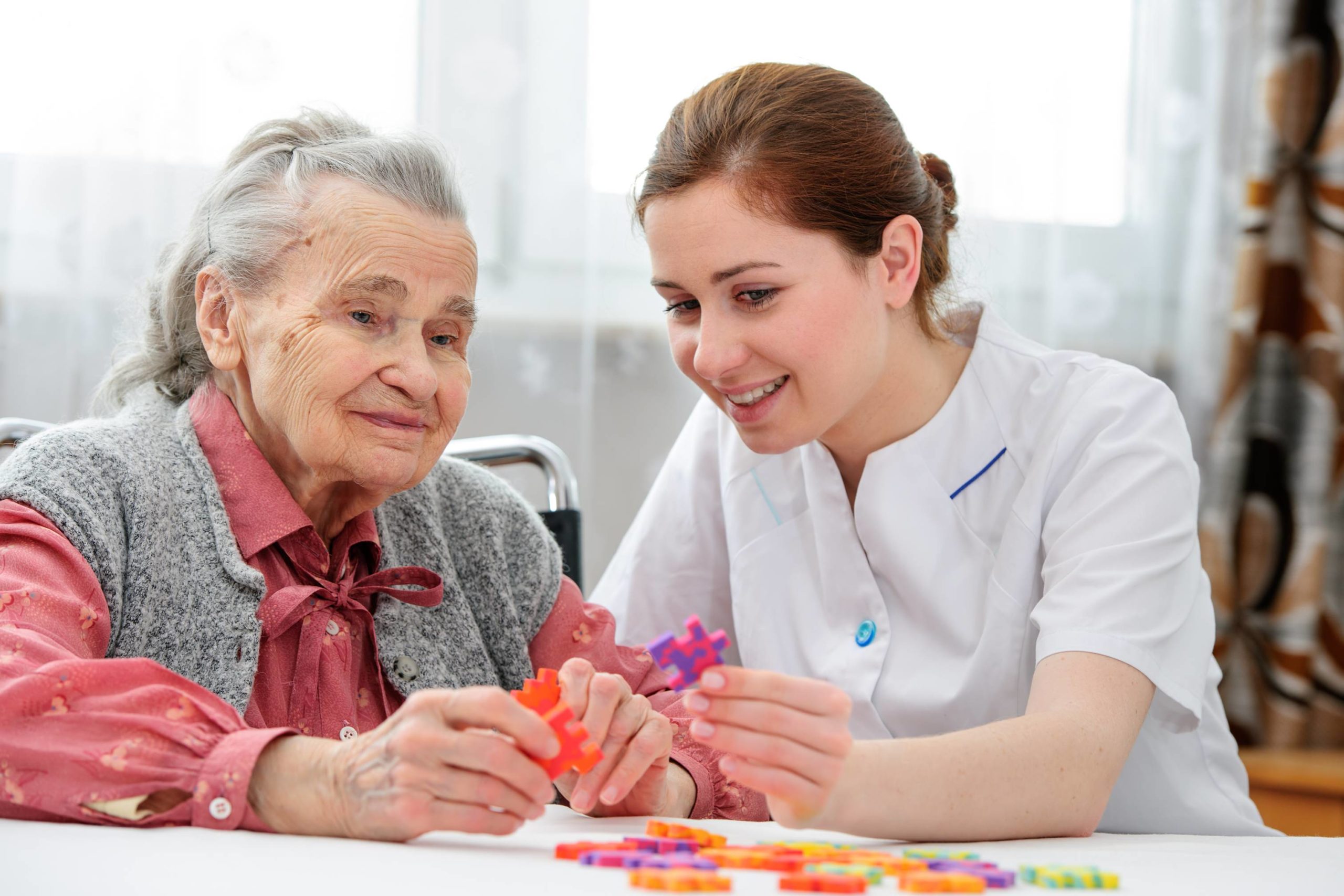Selecting the Right Charlotte Care Home for Comprehensive Elderly Assistance
Creating a Helpful Setting With Specialist Mental Deterioration Care
Creating an encouraging environment for individuals with mental deterioration necessitates a diverse method that integrates professional treatment methods tailored to their one-of-a-kind needs. This involves not only the physical design of rooms that advertise safety and comfort but additionally the application of efficient communication strategies that improve depend on and interaction. The inclusion of significant activities can dramatically stimulate cognitive function and psychological well-being. Nevertheless, the role of caregivers in this dynamic can not be overlooked, as their well-being is similarly critical to offering compassionate care. What, then, are the important parts that can transform this vision into fact?
Understanding Mental Deterioration Needs
When addressing the complexities of dementia treatment, recognizing the distinct demands of people living with this problem is critical - Memory Care Charlotte. Mental deterioration is a multifaceted cognitive disorder that impacts memory, thinking, and day-to-day performance. For that reason, caretakers and healthcare experts have to acknowledge that each person's experience with dementia differs substantially, affected by aspects such as the sort of mental deterioration, stage of the disease, and personal background.
Efficient mental deterioration treatment necessitates a person-centered strategy that values the individual's routines, choices, and worths. This includes promoting open interaction, which can aid caregivers discern the specific needs and needs of those they sustain. Furthermore, recognizing behavioral changes, such as anxiety or withdrawal, is critical, as these habits often signify unmet needs or discomfort.
In addition, caretakers need to be geared up with expertise relating to the psychological and emotional elements of dementia. People may experience sensations of aggravation, despair, or confusion, demanding compassionate responses that confirm their experiences. By growing a setting of compassion and understanding, caretakers can boost the top quality of life for people with mental deterioration, guaranteeing they feel valued and supported throughout their trip.
Designing Safe Spaces
Developing secure rooms for people with mental deterioration is essential, as a well-designed environment can significantly improve their complacency and self-reliance. The physical format of a space need to prioritize security while advertising freedom. This includes lessening obstacles, guaranteeing clear pathways, and using non-slip flooring to decrease the danger of drops.
Incorporating soothing and acquainted components, such as personal photos and treasured items, can aid relieve stress and anxiety and create a feeling of belonging. Additionally, using suitable illumination is vital; natural light is better, however soft, adjustable lighting can aid prevent complication and disorientation throughout various times of day.

Interaction Techniques
Effective communication strategies are critical for fostering meaningful interactions with individuals coping with dementia. Provided the cognitive difficulties related to this problem, caregivers need to utilize approaches that boost understanding and decrease frustration.
One crucial method is to preserve eye contact and utilize a calmness, gentle tone of voice. This method assists to develop count on and signals that the caretaker is completely engaged. In addition, utilizing basic, clear language and avoiding complex sentences can help with much better comprehension. It is additionally useful to ask yes-or-no inquiries, as these are simpler for individuals with dementia to process and solution.
Non-verbal interaction plays a substantial duty as well; gestures, faces, and touch can share empathy and connection. Caregivers should be attuned to the person's non-verbal cues to assess their psychological state and readjust their technique accordingly.
People with dementia may require extra time to process details and develop their thoughts. By executing these interaction methods, caregivers can develop a supportive environment that enhances the well-being of people living with mental deterioration.
Engaging Activities
Involving activities play an essential function in boosting the lifestyle for people coping with dementia, matching the interaction strategies previously reviewed. These activities not only offer cognitive stimulation but additionally foster a feeling of objective and belonging. Customizing tasks to straighten with the person's preferences, abilities, and passions is necessary for maximizing engagement.
Creative pursuits, such as art and music therapy, can stimulate feelings and memories, promoting connections with caregivers and peers. Basic jobs like horticulture or food preparation enable for significant participation, encouraging independence and self-esteem. Moreover, physical tasks, including walking or gentle workouts, advertise general well-being and can lower anxiety and frustration.

Support Resources for Caregivers
Caring for a specific with dementia can be a frustrating experience, making accessibility Home Page to support sources necessary for caregivers' well-being. Numerous sources are available to assist caregivers in taking care of the sensible and psychological challenges linked with mental deterioration care.
Regional support teams provide a vital platform for caretakers to share experiences, receive support, and gain insights from others encountering comparable challenges. Many organizations, such as the Alzheimer's Organization, use educational programs and workshops that boost caregivers' skills and understanding regarding dementia.
Furthermore, respite care solutions can be very useful, permitting caretakers to take required breaks without endangering the care provided to their loved ones. This kind of assistance can stop caregiver burnout, promoting total psychological and physical health.
On-line resources, consisting of discussion forums and internet sites devoted to mental deterioration care, offer caretakers the adaptability of accessing details and More Help area assistance at their ease. In addition, psychological wellness professionals focusing on caregiver support can supply customized therapy and coping techniques.
Integrating these assistance resources right into daily regimens makes sure that caretakers not just fulfill their duties properly yet also prioritize their very own health, promoting a healthier caregiving atmosphere.
Verdict
In verdict, developing an encouraging environment for people with mental deterioration requires a multifaceted technique that resolves their special needs. With each other, these components contribute to a holistic framework that advertises visit this site security, convenience, and psychological health for both people with dementia and their caregivers.
Creating a helpful setting for individuals with dementia demands a diverse strategy that incorporates expert treatment strategies customized to their distinct requirements. Dementia Care Charlotte. Caretakers and healthcare specialists should acknowledge that each person's experience with mental deterioration differs substantially, influenced by aspects such as the type of mental deterioration, phase of the disease, and personal history
By cultivating a setting of empathy and understanding, caretakers can boost the quality of life for people with mental deterioration, ensuring they really feel valued and supported throughout their trip.
By carrying out these communication methods, caretakers can develop an encouraging atmosphere that enhances the well-being of people living with mental deterioration.
With each other, these components contribute to a holistic framework that advertises safety and security, comfort, and psychological health for both people with dementia and their caretakers.